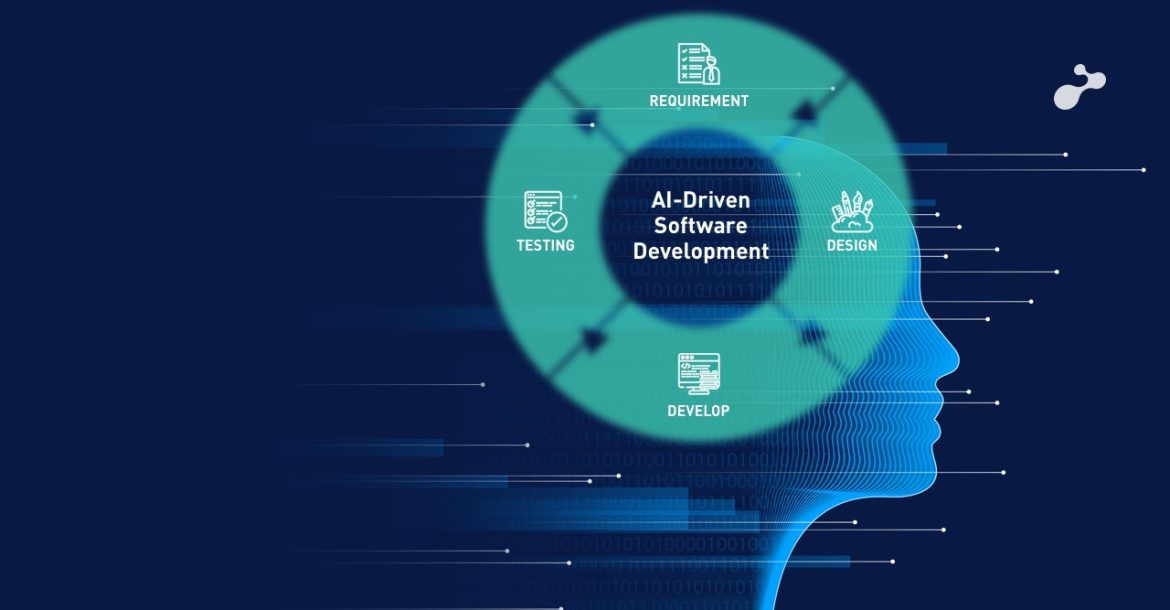Artificial Intelligence (AI) has revolutionized various industries, and software development is no exception. In recent years, AI-driven software development has emerged as a game-changer, streamlining coding processes, enhancing software quality, and accelerating innovation. This article delves into the exciting world of AI-driven software development, exploring its key concepts, benefits, challenges, and the future it promises.
Understanding AI-Driven Software Development
Machine Learning and Automation
AI-driven software development leverages machine learning algorithms and automation to assist developers in various aspects of the coding process. Machine learning models are trained on vast datasets to recognize patterns, predict outcomes, and automate repetitive tasks. This includes code generation, bug detection, and even project management.
Natural Language Processing (NLP)
Natural Language Processing is a critical component of AI-driven coding. NLP algorithms enable computers to understand and generate human-readable code from plain text. This breakthrough simplifies communication between developers and machines, making coding more accessible to a broader audience.
Code Optimization
AI-driven software development extends to code optimization. AI algorithms analyze existing codebases to identify inefficiencies, bottlenecks, and opportunities for improvement. This optimization can result in faster, more efficient software and reduce resource consumption.
Benefits of AI-Driven Software Development
1. Accelerated Development
AI-driven tools can generate code snippets, templates, and even entire modules, significantly speeding up the development process. Developers can focus on high-level tasks while AI handles routine coding.
2. Improved Code Quality
AI-powered code analysis tools can detect potential bugs, security vulnerabilities, and coding style violations. This leads to cleaner, more robust code and reduces the debugging effort.
3. Enhanced Collaboration
AI facilitates collaboration by translating code and documentation into multiple languages, making it easier for global development teams to work together seamlessly.
4. Predictive Maintenance
AI-driven systems can predict and prevent software failures by analyzing code and usage patterns. This reduces downtime and improves user experience.
Challenges in AI-Driven Software Development
1. Data Privacy and Security
AI-driven development often relies on large datasets, raising concerns about data privacy and security. Developers must be vigilant in handling sensitive information and complying with relevant regulations.
2. Quality Assurance
While AI can identify certain issues, human oversight remains essential for thorough quality assurance. Relying solely on AI may lead to missed corner cases and subtle bugs.
3. Skill Gap
Integrating AI into software development requires a new skill set. Developers must learn how to work with AI tools and algorithms, which can be a challenge for some.
4. Ethical Considerations
AI-driven development also raises ethical questions, particularly in decision-making algorithms. Developers must consider fairness, bias, and transparency when using AI in coding.
The Future of AI-Driven Software Development
1. AI-Assisted Creativity
AI will continue to assist developers in more creative aspects of coding, including design, user experience, and algorithm optimization.
2. Enhanced Code Generation
AI will become even better at generating high-quality code, reducing the need for manual coding further.
3. AI-Powered DevOps
AI-driven DevOps tools will optimize the entire software development lifecycle, from planning and coding to testing and deployment.
4. Ethical AI Integration
Developers will place a stronger emphasis on incorporating ethical AI principles into their coding practices to ensure fairness and transparency.
Conclusion
AI-driven software development marks a significant shift in the way we approach coding and software engineering. By harnessing the power of machine learning, natural language processing, and automation, developers can work more efficiently, produce higher-quality code, and innovate at an unprecedented pace. While challenges and ethical considerations persist, the future of AI-driven software development is undeniably exciting, promising to reshape the software development landscape for years to come. Embracing AI in coding is not just a trend but a strategic move toward greater efficiency, reliability, and creativity in software development.

